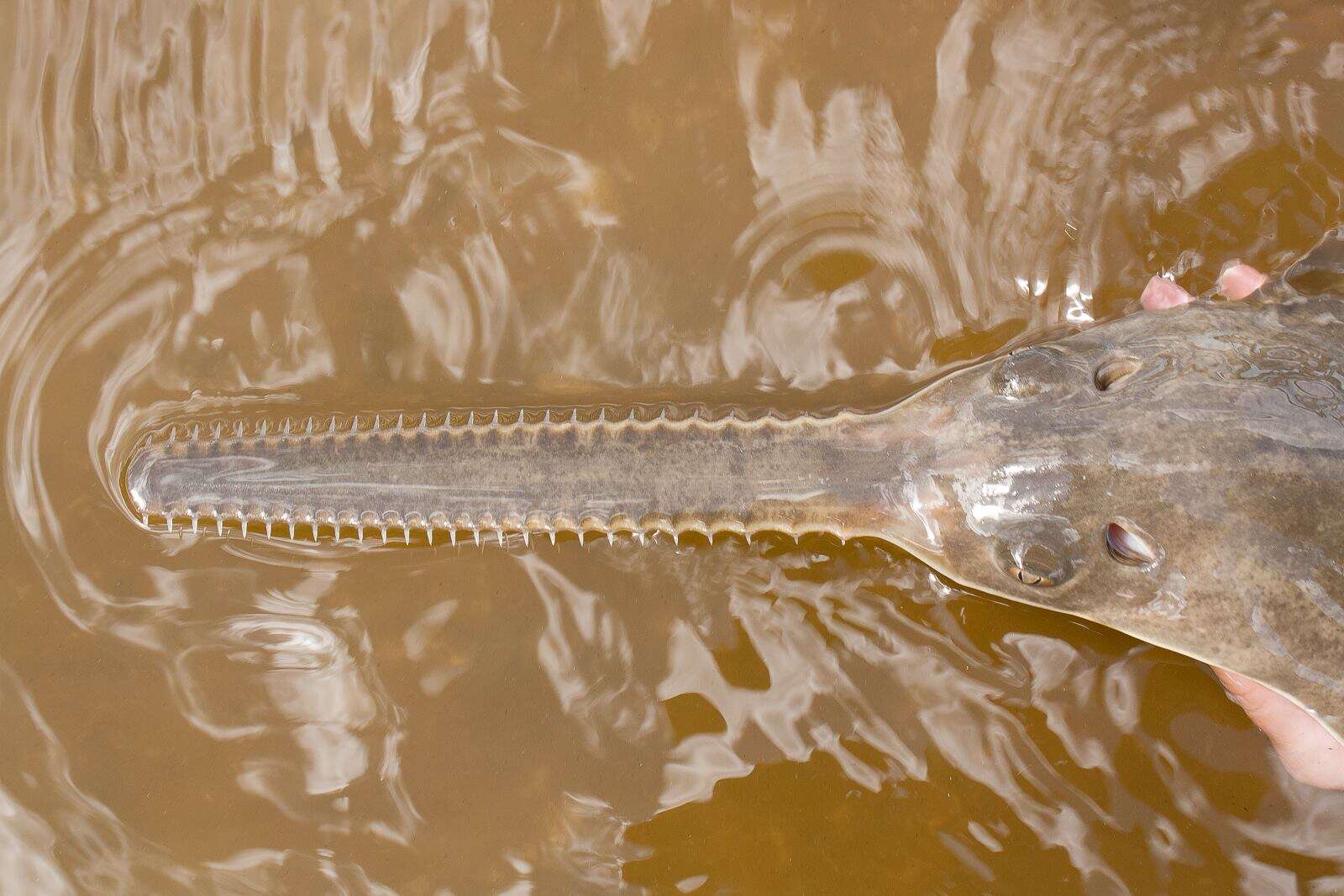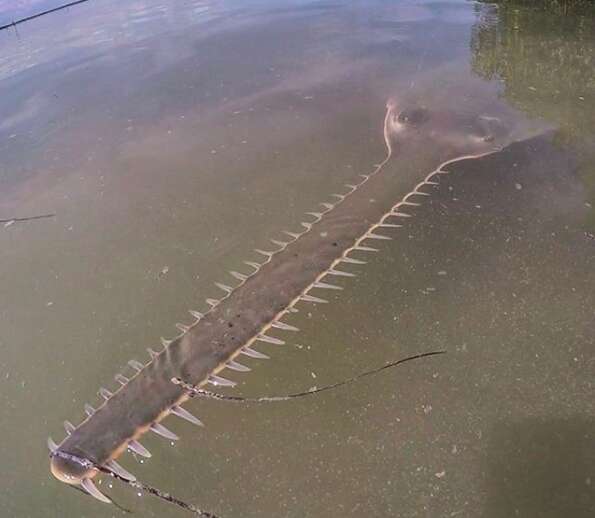With the body of a shark, the face of a stingray and a nose resembling a chainsaw, the smalltooth sawfish is the last thing any swimmer wants to see lurking nearby.
Named for his distinctive snout, or rostrum, lined with pairs of razor-sharp teeth, the sawfish can grow to more than 18 feet long and may look threatening, but this seemingly nightmarish creature is misunderstood — and in serious need of a little kindness.

Teeth aside, the animal has far more in common with its relative the stingray than a shark. The fish is typically peaceful and timid around humans, far more interested in using his long bill and teeth (also known as denticles) to stun small fish, dig and defend against predators than starting any fights.
Once a familiar sight in the warm waters surrounding the Carolinas, Florida, Texas, and even as far north as New York, the smalltooth sawfish’s range and population in North America has declined by 95 percent over the last century, according to the IUCN Red List. It’s now critically endangered.
Xem bài viết này trên Instagram
Overfishing — both intentional and accidental — is primarily to blame for the plummeting population. The species is used in shark fin soup and prized in the Asian markets for medicinal purposes. Its long nose makes it an easy target for any fishing line or net, and is often sold as a souvenir.

“Its bill makes it especially prone to capture by fishermen’s nets, and throughout the twentieth century, people killed the sawfish as a curiosity — a novelty to be stuffed and mounted on a wall,” the Center for Biological Diversity writes. “Fishing still poses a threat to the smalltooth sawfish. Gillnets entangle the fish, and fishermen sometimes kill sawfish simply to keep their nets from tearing.”
Xem bài viết này trên Instagram
Habitat loss has also greatly impacted the sawtooth population, which is now mostly confined to a few spots in southern Florida. The critically endangered creature is so rare and elusive that the Florida Fish and Wildlife Conservation Commission asks that any sightings be reported.
With coastal development threatening the sawfish’s remaining habitat and human interference wreaking havoc on Florida’s mangrove forests where the sawfish young start their life, soon these unique creatures may be gone from our shores forever.

